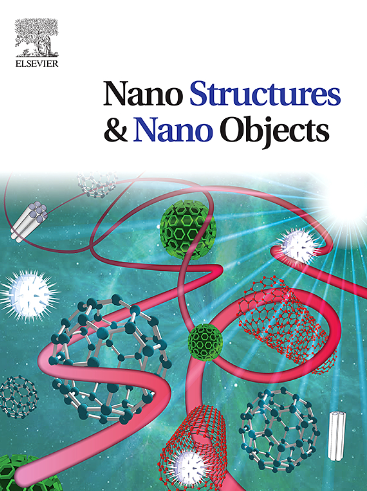Moringa oleifera: A plethora of bioactive reservoirs with tremendous opportunity for green synthesis of silver nanoparticles enabled with multifaceted applications
IF 5.45
Q1 Physics and Astronomy
引用次数: 0
Abstract
Owing to superior stability and minimal chemical reactivity compared to other metals, silver nanoparticles (AgNPs) represent a significant breakthrough in nanotechnology. Given their special physicochemical characteristics, AgNPs have drawn much interest in biological applications. AgNPs are produced using various techniques, including chemical and physical ones. These techniques frequently require harmful substances as reducing agents to synthesize nanoparticles (NPs). To prevent the use of hazardous materials; however, several attempts have been made in the last few decades to develop green synthesis processes. Green synthesis AgNPs have gained broader attention due to excellent antibacterial and allied biological applications. Moringa oleifera is renowned for its lightning-fast growth and broad site adaptability and contains diverse bioactive compounds used traditionally to treat several diseases. Owing to these broad utility M. oleifera plant extract has been widely explored to reduce and stabilize the metallic NPs. Therefore, the green production of moringa various plant part extract-based AgNPs and the function of plant metabolites in the synthesis process is briefly discussed considering their multifaceted applications. Moreover, updates on potential biomedical applications of biosynthesized AgNPs using M. oleifera in a variety of domains with insights into future research directions and strategies for overcoming the challenges have been elaborated.
油辣木籽:大量生物活性蕴藏,为绿色合成银纳米粒子提供了巨大机会,可实现多方面应用
与其他金属相比,纳米银粒子(AgNPs)具有卓越的稳定性和最小的化学反应性,是纳米技术的重大突破。鉴于其特殊的物理化学特性,AgNPs 在生物应用方面引起了广泛的兴趣。生产 AgNPs 的技术多种多样,包括化学和物理技术。这些技术通常需要使用有害物质作为还原剂来合成纳米粒子(NPs)。然而,为了避免使用有害物质,在过去几十年中,人们已多次尝试开发绿色合成工艺。绿色合成 AgNPs 因其出色的抗菌和相关生物应用而受到广泛关注。油辣木以其快速生长和广泛的适应性而闻名,含有多种生物活性化合物,传统上用于治疗多种疾病。由于这些广泛的用途,人们已广泛探索用油辣木植物提取物来减少和稳定金属 NPs。因此,考虑到它们的多方面应用,我们简要讨论了基于辣木各种植物部分提取物的 AgNPs 绿色生产以及植物代谢物在合成过程中的功能。此外,还阐述了利用 M. oleifera 生物合成的 AgNPs 在多个领域的潜在生物医学应用的最新情况,并深入探讨了未来的研究方向和克服挑战的策略。
本文章由计算机程序翻译,如有差异,请以英文原文为准。
求助全文
约1分钟内获得全文
求助全文
来源期刊

Nano-Structures & Nano-Objects
Physics and Astronomy-Condensed Matter Physics
CiteScore
9.20
自引率
0.00%
发文量
60
审稿时长
22 days
期刊介绍:
Nano-Structures & Nano-Objects is a new journal devoted to all aspects of the synthesis and the properties of this new flourishing domain. The journal is devoted to novel architectures at the nano-level with an emphasis on new synthesis and characterization methods. The journal is focused on the objects rather than on their applications. However, the research for new applications of original nano-structures & nano-objects in various fields such as nano-electronics, energy conversion, catalysis, drug delivery and nano-medicine is also welcome. The scope of Nano-Structures & Nano-Objects involves: -Metal and alloy nanoparticles with complex nanostructures such as shape control, core-shell and dumbells -Oxide nanoparticles and nanostructures, with complex oxide/metal, oxide/surface and oxide /organic interfaces -Inorganic semi-conducting nanoparticles (quantum dots) with an emphasis on new phases, structures, shapes and complexity -Nanostructures involving molecular inorganic species such as nanoparticles of coordination compounds, molecular magnets, spin transition nanoparticles etc. or organic nano-objects, in particular for molecular electronics -Nanostructured materials such as nano-MOFs and nano-zeolites -Hetero-junctions between molecules and nano-objects, between different nano-objects & nanostructures or between nano-objects & nanostructures and surfaces -Methods of characterization specific of the nano size or adapted for the nano size such as X-ray and neutron scattering, light scattering, NMR, Raman, Plasmonics, near field microscopies, various TEM and SEM techniques, magnetic studies, etc .
 求助内容:
求助内容: 应助结果提醒方式:
应助结果提醒方式:


